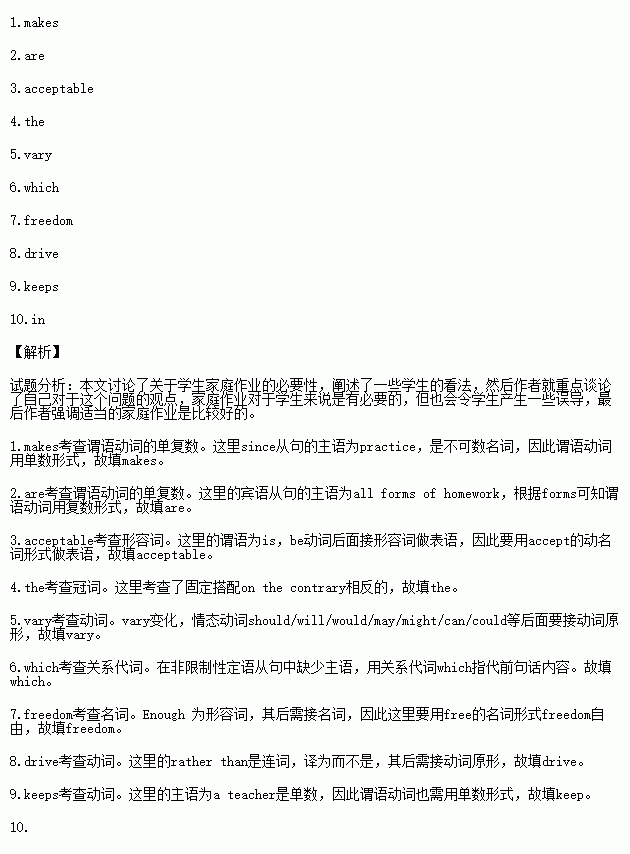题目内容
There is much discussion about the necessity of daily homework for students. Some say homework is necessary since only practice 1. (make) perfect, while others disagree. In my opinion, daily homework is necessary for students. However, this might be misleading that one may believe all forms of homework 2. necessary. Actually , only proper amount of homework in proper form is 3. ( accept); some homework may not only fail to help the students, but on 4. contrary bore them so much that they may lose their interest in studying. “Proper” homework, in my opinion, should 5. (vary) in its forms, 6. might be some extensive reading, a paper, or even just a game, as well as other ordinary exercise. And it should leave enough 7. (free) to the students so that they could do things they really like to do with self-motivation, rather than unwillingness. We should always remember that homework is something for us to guide the students, rather than 8. (drive) them. Only if a teacher 9. (keep) this 10.his/her mind, the homework could be of most help to the students.

